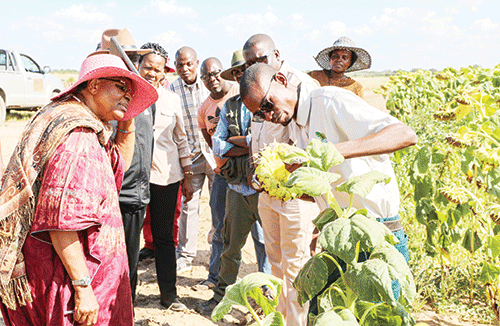KATIMA MULILO – President Nangolo Mbumba on Thursday revealed that the government has availed N$8 million to revive the Kalimbeza Rice Project.
Mbumba made the announcement during his keynote address at Namibia’s 34th Independence Day celebrations held last week in Katima Mulilo in the Zambezi region.
Zambezi region hosted Independence Day celebrations for the first time since independence in 1990.
Mbumba also said the government approved the establishment of a sugar plantation on part of Kalimbeza, in addition to a sugar processing plant in at Katima Mulilo.
These projects, Mbumba added, will bring the much-needed development and jobs to the Zambezi region, adding that housing, education infrastructure, and provision of water projects are also in the pipeline.
“In 34 years, we have built ourselves a nation we can all be proud of. A nation rooted in democracy, peace and stability, and unity in diversity. This is the legacy that the heroes and heroines of the Republic of Namibia have bequeathed to us,” Mbumba noted.
The President urged Namibians to guard against tribalism, racism, regionalism, corruption, and crime, saying Namibians should rather become wise nation builders, pulling together in one direction “to decisively win the second phase of the struggle for economic freedom and shared prosperity.”
The head of State also called upon Namibia’s security cluster to redouble its efforts in protecting Namibia from external and internal criminal threats.
“We all have a collective responsibility to ensure that Namibia maintains its reputation as a peaceful and stable country,” Mbumba said.
Recently, Vice President Netumbo Nandi-Ndaitwah called for the revival of the Kalimbeza rice project to enhance food security in Namibia.
Envisaged to be the major rice project in the country, the Kalimbeza rice project situated 56 kilometres from Katima Mulilo has not been operational since 2021, amongst others due to broken machinery and a water pump that needs to be replaced.
In an interview with Nampa on the sidelines of her familiarisation visit to the project recently, Nandi-Ndaitwah said it has proven to be effective before and urged the project manager to work with the University of Namibia, which has experience in rice plantations.
“There’s not much required except replacing some of the broken machines and repairing others. When you’re running a farm and one machine is not working, it makes work ineffective,” she said.
She advised the project manager to start preparing and put things in place so the project can become operational again by August this year. -Nampa



